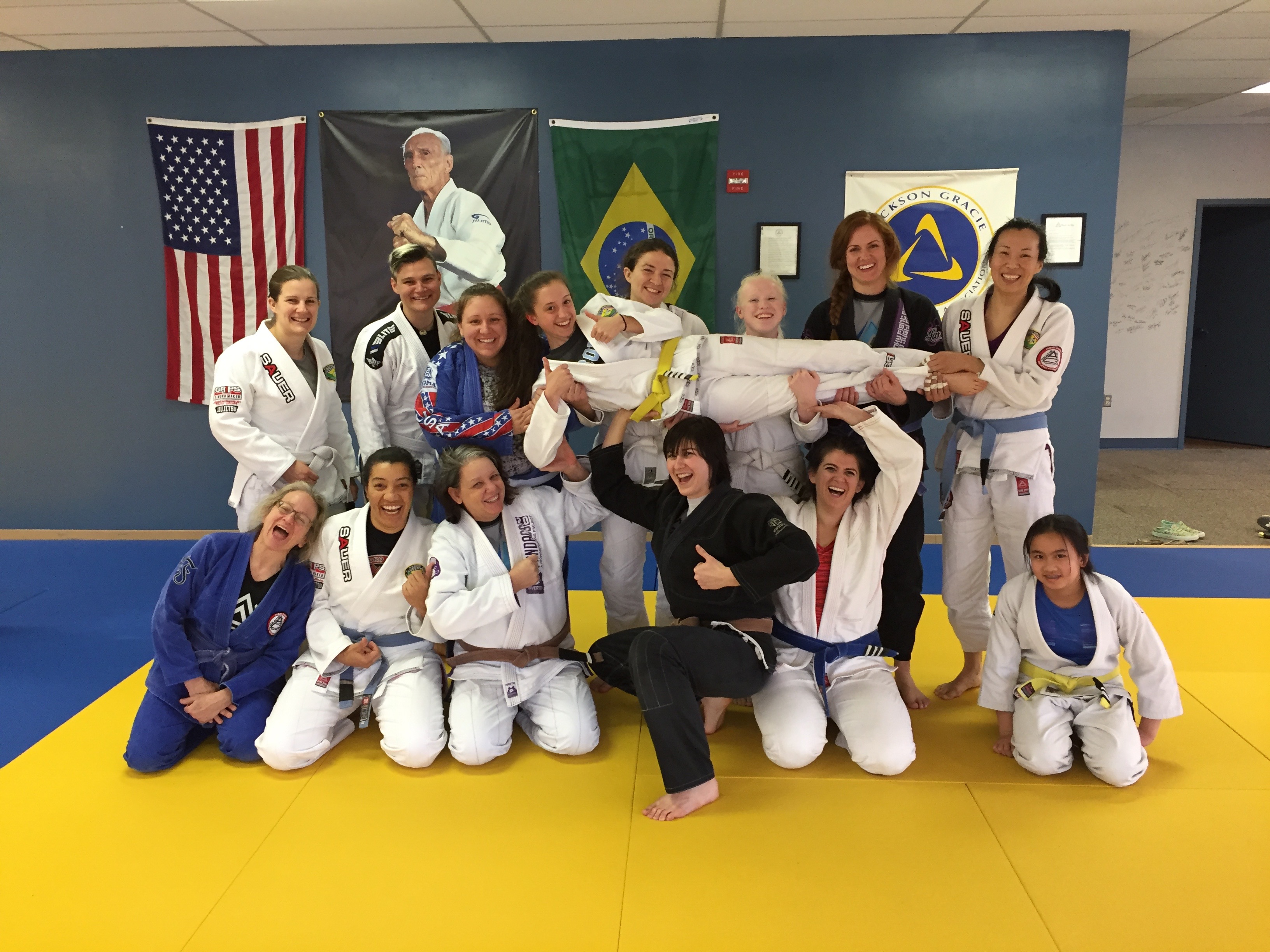I have students in my kid’s jiu-jitsu class who are very good. But the problem is that some of them never feel like they are getting any better because they compare themselves to other students all the time. The hardest thing for an instructor to hear, especially an instructor of kids, is that their student doesn’t think they are getting any better.
But I can’t blame them for doing so because I do the same thing. Monday night I trained with my friend who is a two stripe black belt who has a really good crossbody. Now I’m a brown belt but I was having a really hard time escaping. After we were done he helped with my mistakes but I could think in my head was “after all this time I still can’t escape crossbody…?” “Am I even getting better?” “I don’t deserve to be a black belt one day!” These thoughts in my head slowly devolved and started to have a mental breakdown. While I was starting to have my mental breakdown Monday night I texted my manager and friend, who is also a two stripe black belt. He reminded of that you shouldn’t base your progress on individuals. Then I remembered the things I tell my students in my kids class all the time.
Martial arts is a funny thing. It’s not like lifting, running or rock climbing. Where it is very clear whether you are getting better. You can lift more weight, run faster or finish the route. You don’t have to make these activities competitive or comparative. But in martial arts, especially arts that spar a lot, like Thai and Jiu Jitsu it is naturally competitive and comparative. This is because you are literally “fighting” another human being to see if you can “win.” Now I’m not saying that every sparring session or rolling session is a fight to the death but we usually gauge whether we are getting better by who we can “beat” or maybe not get “beaten” by.
Now unless your goal is to be a world champion in your given martial sport, I’m not going to argue that that is not the best way to judge your progress. Most of us are lifestyle martial artist and there are some things to consider when evaluating your progress on a day to day basis.
- Your teammates are also getting better.
You’re are not the only who is getting better. Your training partners and teammates that you are training with are also improving. Some at faster rates and some at a slower progression. It doesn’t mean that you are not also progressing in your journey as well. Say if you’re always chasing that black belt, which I have been known to do, it’s not like they stopped getting better as soon as they got to black belt. In those moments that you think you’re getting worse, you are actually just plateauing, the people are also getting better.
- We are all on our own individual path.
There will always be people who are worse than you and better than you. That is just the nature of the universe. Unless you are the undisputed champion of the world, and even in that case, you will probably always find someone who can bet you or who just gives you problems when you spar. That’s ok! We are all running our own race. Your progress should be based on whether you would have beaten yourself when you first started not by comparing your self to others.
- Manage your expectations.
I train multiple martial arts and teach full time and I train with “specialists” all the time. Some are competitors, some are hobbyists, and some are weekend warriors. So I try my best to keep up with people who just focus all of their attention on one martial art. But I have to be aware that because I am training other things I may not be as good as some people who just train BJJ or Muay Thai. And that is ok as long as I manage my expectations. I cannot expect to be as good as a competitor unless I train like one.
- This is training
This doesn’t count. It’s training. It all in preparation for the only fight that matter, which is the fight for your life. You shouldn’t go in and keep score. No one is handing out medals today. Instead, go into each sparring session with specific goals and a ” learning” mindset. Focus on specific tangible things that you can directly control while your training. This will help put you in learning mode when you’re building your skills.
These are the points I try to make in my kids class all the time when the kids get down on themselves. I remember them so clearly when I coach but I have a tendency to forget when I’m training. When I get to that breaking point I remind myself of these things. So I sat myself down in the back of the changing room and told myself all of the tips I said above. Cause sometimes you have to be your own coach and tell yourself “Your getting better, I swear!”
